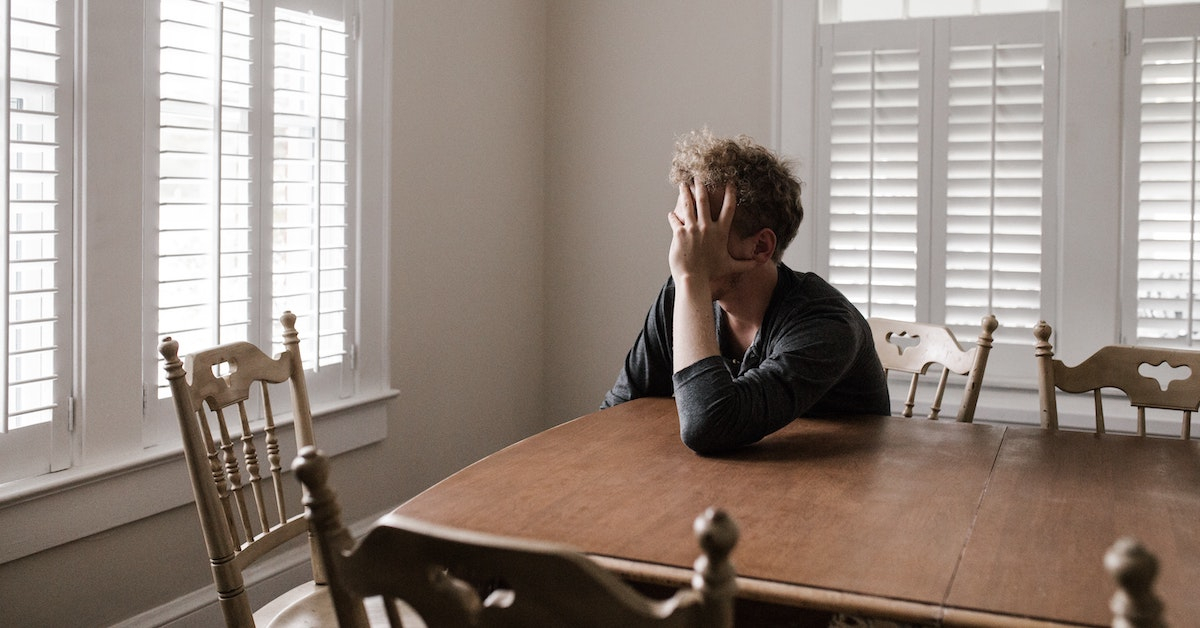This article is sponsored by one of the fastest-growing telehealth companies in America, Antidote Health.
A common sentiment in mental health advocacy is that “you’re not alone”, but it can be difficult for those in the deepest throes of depression, anxiety, and P.T.S.D. to feel that way. Mental health struggles can feel profoundly alienating and isolating for those in the thick of them, especially if they don’t have supportive people or support resources immediately available to help them.
If you’re one of those people currently struggling, we would like to emphasize, reiterate, and reaffirm that you truly are, in fact, not alone. We don’t want to invalidate the reality of how alienating it can feel to live in perpetual isolation, stress, and sadness, but we would again like to reaffirm that you are truly far, far from alone.
The latest affirmation and piece of evidence of this sentiment can be found in the form of new global mental health data, provided courtesy of the United Nations and the World Health Organization. According to a UN News report published this past Friday, nearly 1 billion people are believed to be dealing with a mental health diagnosis in some form. This means that nearly 1 in 7 people worldwide suffers from mental health conditions. The same UN News report came to some additional startling findings:
- 7 in 10 people with psychosis receive treatment in high-income countries, compared to only 12% in poorer countries
- Affluent countries offer “minimally adequate” treatment for depression in only 23 percent of cases
- That number dwindles to merely 3% in poorer countries with less accessible care
- Rates of common conditions spiked 25% over the course of the COVID-19 pandemic
- 70% of those suffering from psychosis worldwide do not receive the help they need
- 3 out of 4 people in lower to middle-income countries do not receive the care they need
In addition to the current present mental health threats posed by the COVID-19 crisis, UN officials are looking ahead at future mental health threats that could likely be posed by climate change. Learn more about both, and where you can find online mental health resources if you need them.
Mental Health and COVID
The COVID-19 pandemic was (and continues to be) a remarkably distressing time, impacting the lives and psyches of millions of people. At the height of the pandemic, over the course of its first year, the UN found that rates of depression and anxiety soared by 25% due to the distressing life changes wrought by the coronavirus.
Proportionally, women were hit hardest by this mental health impact, more so than men, and in general, younger adults were affected more than older generations. People with pre-existing physical health issues, including cancer and cardiovascular conditions, were also at greater risk of suffering from these worsened mental health disorders.
Despite this unprecedented uptick in mental health disturbances, governments worldwide continued to underfund and underspend on mental health services. The UN reported that global governments spent just over a measly 2% of their budgets on mental health funding. Furthermore, poorer nations had fewer than one counselor per 100,000 citizens.
“While the pandemic has generated interest in and concern for mental health, it has also revealed historical under-investment in mental health services. Countries must act urgently to ensure that mental health support is available to all”, remarked WHO official Dévora Kestel.
Mental Health and Climate Change
In addition to the proven mental health ramifications caused by our current crisis, experts worry about the potential mental health ramifications posed by future crises, namely such crises presented by global climate change.
Extreme weather events and exacerbated natural disasters will be sure to present a number of adverse psychological and physiological health challenges for millions. For starters, increasing heat has been demonstrably known to decrease sleep quality, and sleep lends a crucial hand in maintaining physical, mental, and general wellness overall.
(See our guide for more information on how heat waves can adversely impact sleep)
Further, one IPCC-published study established fairly direct links between climate change and various forms of emotional distress, including depression, grief, stress, and even suicidal ideation in some cases. Yet, despite these rising threats, only 5 out of 95 countries featured in a WHO survey last year included mental health funding in their national public health and climate action plans.
In a policy briefing earlier this month, the UN, WHO, and WHO mental health director Kestel advocated for increased mental funding to address these mounting crises. “By ramping up mental health and psychosocial support within disaster risk reduction and climate action, countries can do more to help protect those most at risk.”
We hope your ultimate takeaway from the above is that you’re far from alone in your struggles, and we hope that the world will heed the UN and WHO’s word.
Online Mental Health Resources
If you’re struggling to find affordable, accessible behavioral healthcare in your area, we would encourage you to seek out affordable online tele-therapy providers such as Antidote Health, geared toward serving the uninsured and underinsured.
Likewise, if you’re in need of remote support, you can view our full directory of online therapy services here.


